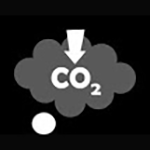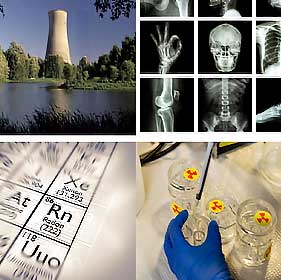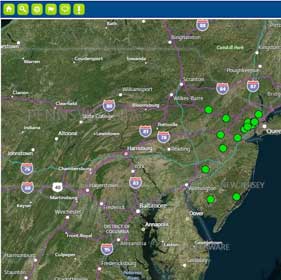What We Do
Air, Energy & Materials Sustainability (AEMS) develops statewide programs, policies, permits and regulations for controlling air pollution and radiation exposure and mitigating climate change along with furthering the promise of environmental justice by reducing disproportionate air pollution through investment in clean technology, and enforcement of our environmental laws and new approaches to air quality permitting.
AEMS is engaged in the following environmental initiatives:
- Climate change mitigation
- Outdoor (ambient) air quality
- Reducing Industrial air pollution (stationary sources)
- Reducing Pollution from vehicles and engines (mobile sources)
- Emission Measurement
- Diesel Enforcement
- Clean and renewable energy
- Release Prevention
- Small Business and Public Assistance
- Emergency response and environmental monitoring around New Jersey’s nuclear power plants
- Regulating the use of x-ray devices and radioactive materials used for medical and industrial purposes
- Remediation of former radioactive contaminated sites
- Radon and,
- Sustainable practices.
AEMS is responsible for ensuring New Jersey meets the requirements of the Federal Clean Air Act, and the Federal Atomic Energy Act as an Agreement State, as well as the United Nations Framework Convention of Climate Change’s (UNFCC’s) Paris Agreement. AEMS draws its authority from a number of state laws, including the Air Pollution Control Act, the Radiation Protection Act, Radiologic Technologist Act, the Radiation Accident Response Act, the Radon Act, the Solar Act, the Global Warming Response Act and the Global Warming Solutions Fund Act.
We are organized into five divisions: Division of Air Quality & Radiation Protection which is focused on efforts to control and reduce air quality and climate change pollutants and air toxics with reducing public exposure to radiation from naturally occurring and manmade sources; Division of Air Enforcement which is focused on ensuring regulated entities comply with the NJ Air Pollution Control Act; Division of Climate Change Mitigation & Monitoring which is focused on mitigate climate change by reducing emissions of greenhouse gases and other climate pollutants, advancing clean and renewable energy initiatives, operating the state’s ambient air monitoring network; Division of Sustainable Waste Management which is focused on environmentally sound and cost-effective management of solid and hazardous wastes and recyclable materials to protect public health, preserve the environment; Division of Solid, Hazardous Waste & UST Compliance and Enforcement which is focused on Enforcement operations by overseeing inspections, investigations, registration/licensing and enforcement operations regarding solid, hazardous and medical wastes, and the recycling of these wastes along with underground storage tanks.
AEMS engages and educates our regulated community and the general public about clean air, climate change and transportation/energy choices, waste reduction, recycling, promote and implement sustainability principles and programs and radiological impacts from nuclear energy and other sources (e.g., radon, medical procedures).
Finally, AEMS interacts with several other State agencies, including the Board of Public Utilities, the Economic Development Authority, the Department of Health, the Department of Transportation, and the Motor Vehicles Commission, to ensure consistency in regulating transportation and energy systems and encouraging sustainable practices.
 Official Site of The State of New Jersey
Official Site of The State of New Jersey











